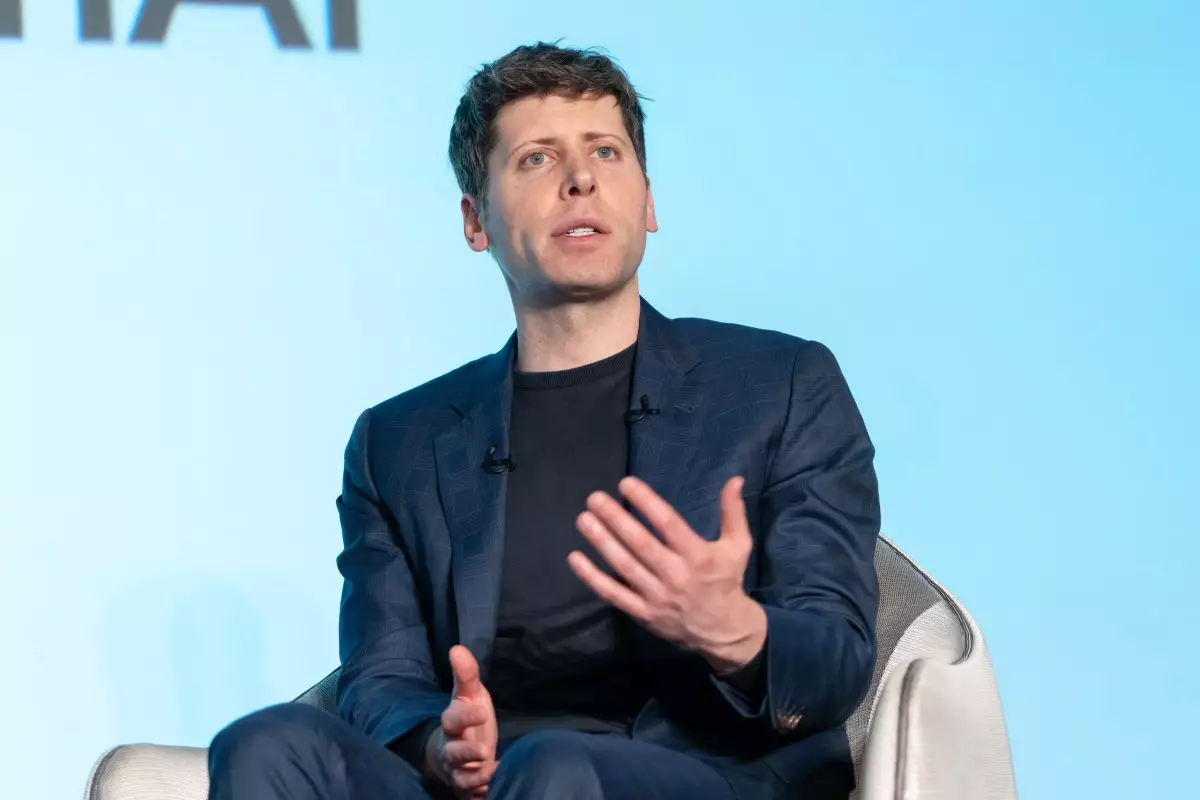The advent of artificial intelligence (AI) has undeniably changed the way humanity interacts with technology. As AI continues to evolve, the challenge of distinguishing between human and AI agents has become increasingly pronounced. Tools for Humanity, a brainchild of OpenAI CEO Sam Altman, is tackling this issue head-on with the launch of an innovative mobile device known as the Orb Mini. Having been unveiled recently during a captivating event in San Francisco, this device aims not only to facilitate verification of human identity but also to open avenues for a broader understanding of our rapidly changing digital landscape.
What makes the Orb Mini stand out is its design and functionality. Resembling a smartphone, it features advanced sensors specifically engineered to scan users’ irises, functioning as a crucial tool in the fight against AI impersonation. Rich Heley, the Chief Device Officer at Tools for Humanity, expressed that this device marks a significant step towards a future where human identity could hinge upon digital verification methods. The idea is revolutionary yet straightforward: create a “proof of human” framework to assist in distinguishing real identities from potentially deceptive AI impersonations.
From Vision to Reality: The Orb’s Journey
The Orb project, formerly known as Worldcoin, is rooted in the intriguing notion that one day, telling a human apart from an AI online will become practically impossible. This ambitious vision aligns with the aspirations of the World community, comprised of millions who have already registered for the service. In an era increasingly fraught with doubts over online authenticity, tools such as the Orb Mini are not merely helpful; they are essential.
The tactile experience of using the Orb Mini, rumored to be designed by Thomas Meyerhoff, a former Apple designer, promises to bridge the gap between user friendliness and cutting-edge technology. While its primary function is to authenticate users rather than facilitate typical smartphone activities, this device is destined to revolutionize the digital identity verification space. Yet, the final capabilities of the Orb Mini remain ambiguous, a factor that invites curiosity and skepticism alike.
Global Expansion: Entering the U.S. Market
In a bid to extend its reach, Tools for Humanity is launching its World Network beyond existing global territories into the United States. Beginning its outreach in several major cities, including Austin and Los Angeles, the initiative aims to create storefronts where users can visit to have their irises scanned and receive their unique blockchain identifier. While the project’s success in other regions is noteworthy—with claims of 26 million registrations and 12 million verifications—the questions surrounding its future trajectory in the competitive U.S. market loom large.
This expansion brings both hope and concern. The growing prevalence of such verification technologies could usher in an era where personal identity is safeguarded against AI’s encroachment. Conversely, the ethical implications of scanning and storing biometric data cannot be disregarded. Are users aware of the potential risks involved? The overall impact of these technologies requires deep scrutiny before society fully embraces them.
The Bigger Picture: AI Integration and Future Prospects
As if the developments surrounding the Orb Mini weren’t already compelling enough, the potential for future integration with other AI technologies raises the stakes even higher. Speculation abounds regarding whether the Orb Mini will collaborate with OpenAI’s ventures, particularly considering Altman’s dual roles. Would this device incorporate AI capabilities, enhancing its functionality while posing new questions surrounding security and privacy?
The intertwining of human verification technologies and AI creates a unique landscape marked by both intrigue and apprehension. The urgency of addressing these issues has never been greater, as society navigates the possibilities and pitfalls of this new digital age. Individuals and organizations alike must assess the ramifications of such innovations on personal identity, digital security, and the ethical considerations of AI’s role in everyday life.
As Tools for Humanity pushes forward with the Orb Mini, it invites us to ponder a compelling question: In a world where AI capabilities will only grow, how do we ensure our human identities are protected? The answers lie not just in technological advancements but in the ethical frameworks we construct alongside them.

